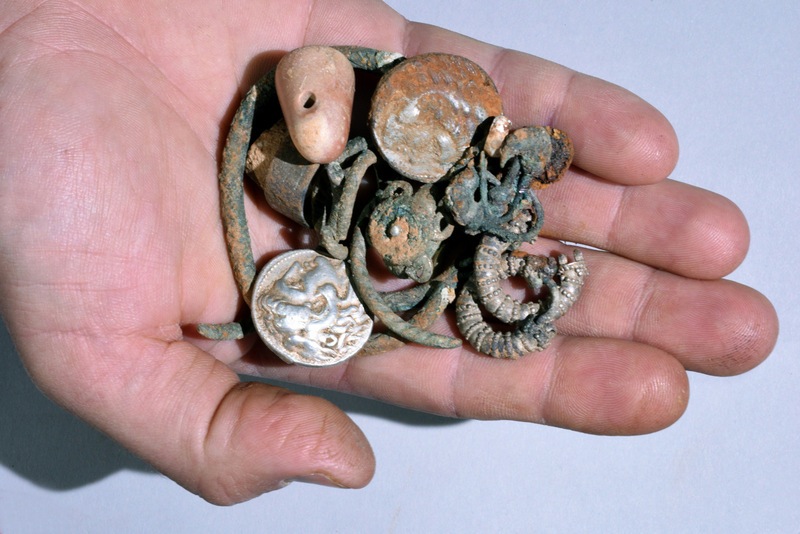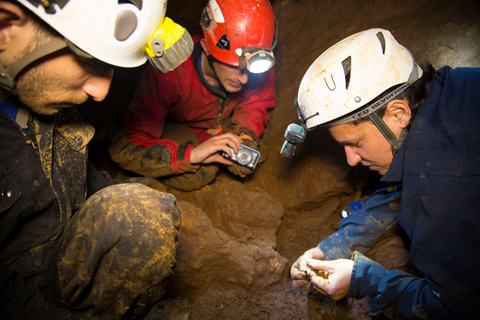Cavers Find Ancient Hoard of Coins and Jewelry in Israel

While spelunking in northern Israel, cavers stumbled upon a hidden stash of ancient coins and jewelry from the era of Alexander the Great, the Israel Antiquities Authority (IAA) announced today (March 9).
IAA officials suspect locals may have put these artifacts in the cave for safekeeping during a time of political unrest 2,300 years ago — but they wouldn't have been the first. Archaeologists who inspected the cave found even more ancient objects inside, some 6,000 years old.
To prepare for an upcoming expedition, three members of the Israeli Caving Club — Reuven Zakai; his 21-year-old son, Hen Zakai; and their friend Lior Halony — were exploring a stalactite cave in northern Israel two weeks ago, according to a statement from the IAA. [The Holy Land: 7 Amazing Archaeological Finds]
When Hen Zakai forced himself into a narrow corner of the cave, he apparently found two ancient silver coins minted during the reign of Alexander the Great alongside silver rings, bracelets and earrings.

"The valuables might have been hidden in the cave by local residents who fled there during the period of governmental unrest stemming from the death of Alexander, a time when the Wars of the Diadochi broke out in Israel between Alexander's heirs following his death," IAA officials said in a statement. "Presumably, the cache was hidden in the hope of better days, but today we know that whoever buried the treasure never returned to collect it."
IAA officials have kept the exact location of the cave a secret, not only because of concerns about protecting the archaeological finds, but also to keep people away from the dangerous and difficult-to-navigate cave.
After the spelunkers reported the find to the IAA, officials with the agency descended into the cave for further investigation this past weekend. They found more objects, including pottery, dating back to the Chalcolithic period 6,000 years ago, the Early Bronze Age about 5,000 years ago and the Biblical period about 3,000 years ago.
Sign up for the Live Science daily newsletter now
Get the world’s most fascinating discoveries delivered straight to your inbox.
In Israel, people could face up to five years in prison for breaking the Law of Antiquities, which states that all antiquities (which belong to the state) must be reported to authorities and cannot be removed from their location, sold or traded.
Amir Ganor, director of the IAA's Unit for the Prevention of Antiquities Robbery in the Israel Antiquities Authority, praised the cavers for reporting their discovery right away.
"They understood the importance of the archaeological discovery and exhibited exemplary civic behavior by immediately bringing these impressive archaeological finds to the attention of the IAA," Ganor said.
This is the second time in a month that citizens have inadvertently discovered an archaeological treasure in Israel. In February, members of an amateur scuba-diving club found a cache of nearly 2,000 gold coins off the coast of Caesarea, an ancient harbor city.
Follow Megan Gannon on Twitter. Follow us @livescience, Facebook & Google+. Original article on Live Science.










